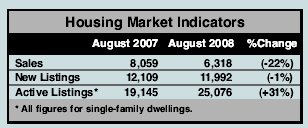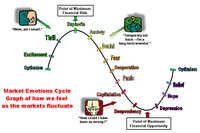Enjoy!
Mark
Pierre Trudeau's Liberal government first began implementing metrication in Canada in 1970 with the Metric Commission being established in 1971. By the mid-1970s, metric product labeling was introduced. In 1972, the provinces agreed to make all road signs metric by 1977. There was some resistance to metrication. The metrication of gasoline and diesel fuel sales in 1981 prompted 37 Progressive Conservative Members of Parliament to open a "freedom to measure" gas station in Carleton Place, Ontario, selling gas in both imperial gallons and litres. Some government employees lost their jobs due to their opposition to the government's forced metrication.
The election of the PC government of Brian Mulroney in 1984 slowed, and ultimately stalled, metrication in Canada. The Metric commission was abolished in 1985. Today, Canadians typically use a mix of metric and Imperial measurements in their daily lives.
Notwithstanding the end of officially-sanctioned metrication in Canada, most laws, regulations, and official forms exclusively use metric measurements. However, imperial measures still have legal definitions in Canada and can be used alongside of metric units.
Canadians typically discuss the weather in degree Celsius, purchase gasoline in litres, observe speed limits measured in kilometres per hour (km/h), and their road signs and maps measure distances in kilometres. Automobiles have metric speedometers and odometers, although many speedometers include smaller figures in miles per hour (MPH) for trips to the United States. Fuel economy for new vehicles is published by Transport Canada in litres per 100 kilometers but window stickers in dealer showrooms include "miles per imperial gallon" conversions even though neither of these units has been used in fuel sales or road signs in three decades. The railways of Canada continue to measure their trackage in miles. Canadian railcars show weight figures in both metric and imperial.
Food and many retail products are sold in metric. Some products, however, are sold in imperial sizes, but labelled in metric units. An example of this is butter, which is sold in a 454-gram package (and labelled as such), even though it represents one pound. This is known as "soft metric" (as opposed to a "hard metric" system, where packages and measures are generally sold in round, even numbers; in a hard metric system, butter would come in a 500 g package). Similarly, fast food restaurants often advertise measurements of food and drink in U.S. customary units converted to metric units, either because the containers are made to U.S. standards, or the franchise is U.S.-based and uses a standard size for its products. Thus, in Canada a 20 fl. oz (U.S.) bottled soft drink is labelled as 591 mL. Beer in bottles continues to be 12 imperial fluid ounces (labelled as 341 mL), but beer in cans is filled to 12 U.S. fluid ounces (labelled as 355 mL). There is also a larger sized beer bottle which is labelled as containing 1,183 mL. This corresponds to exactly 40 U.S. fluid ounces. Supermarkets will often advertise foods such as meats and produce "per pound," since such prices may appear lower to consumers than prices advertised by kilogram.
However, virtually all supermarket scales are metric, and the products advertised by the pound in a supermarket flyer are inevitably weighed and sold to the customer in the store based on a price "per 100 grams" or "per kilogram."
Similarly, floor space is usually measured in square feet, as a 1,500-square-foot (140 m²) house may be more appealing to a homebuyer than the same size house that is advertised as 140 square metres. Construction materials, including construction lumber and drywall, continue to be sold in imperial measurements; retrofitting metric-sized (designed for 400 millimetre centres) wallboard on old 16-inch (406.4 mm) spaced studs is difficult. Interestingly, however, the zoning bylaws and building codes that govern construction are in metric (as are virtually all official documents), although some building codes will also contain imperial equivalents.
Canadians typically measure their personal height in feet and inches and weight in pounds. In addition, Fahrenheit is often used for cooking, similar to U.S. cooking measurements, although some appliances in Canada are labelled with degrees Celsius or are convertible, and metric cooking measures are widely available. Stationery and photographic prints are also sold in sizes based on inches and the most popular paper sizes, letter and legal, are sized in imperial units. The Canadian Football League continues to play on a field measured in yards, and golfers expect courses to be measured in yards.
Free trade with the United States has further complicated matters. Since the United States is Canada's largest trading partner, Canadian exporters and importers must be accustomed to dealing in U.S. customary units as well as metric.
Notwithstanding all of the above, the use of metric or imperial measurements varies by age and region. For example, some older Canadians persist in using Fahrenheit in discussing temperature, often referring to it as "the old system," despite the virtually exclusive use of degrees Celsius in weather reports.
Canadians younger than 40, in contrast, most of whom have received only metric instruction in school since the early 1970s, are typically more familiar with metric measurements; though traditional units are commonly used for height and weight, and often used for length, a general understanding of traditional units does not generally go much beyond that unless perhaps the user has spent a significant amount of time in the United States. Metric is more widely used in Quebec. The use of imperial units is more common in rural areas in the rest of the country, where opposition to metrication was strongest, rather than in urban areas.
Canadians are exposed to both metric and imperial units, and it is not unusual for there to be references to both feet and metres, acres and hectares, and grams and ounces in the same conversation. Quantities of Canadian land are likely to be expressed in acres as opposed to hectares, and courses and distances will be measured in feet and other English units for the indefinite future, because a conversion to the metric system would require a resurvey of the land, and doing that would destabilize the security of land titles.
In the health care system, SI units dominate. For example, for measurements of blood cholesterol, the units are millimole per litre, whereas they are milligram per deciliter in the United States. While both units are composites of "metric" units, the litre is not an official SI base unit. Because most fasteners, machine parts, pumps, piping, and all building materials are sold in imperial or U.S. customary units, engineers in Canada often use imperial units.
As in the United States, most prefer to work in metric then convert to imperial for specification. Canadian engineers are educated in both systems and are keenly aware of the differences between the imperial, US customary and metric systems Trades associated with machine work, such as machinists, automotive, and heavy duty technicians, frequently use both metric and imperial.
Machines made in Canada often incorporate parts from other countries and thus the finished product will have metric and imperial parts on it. Farm and industrial equipment manufactured in Canada will most often use imperial fasteners and structural steel, but fluid capacities are always listed in metric.
Building trades such as plumbing and carpentry use imperial units exclusively. Rough lumber, drywall, plywood, fasteners, pipes, and tubing are all sold in imperial units.
Electricians commonly use metric terms such as volts and amperes, but wire is sized in American wire gauge and conduit in inch diameters. In 2005, the Ontario government announced changes to the secondary school math curriculum that would allow imperial units to be taught along with metric units.
This marked a huge turn from when the previous governments did everything to make sure that the curriculum only used the metric system.
This was done in light of the fact that much of the private sector has either refused or been very slow to metricate, thus many students had been leaving school unprepared for the units used in the workplace. Many other provinces and territories also include the imperial system of measurements as part of their educational curriculum.
So there you have it. Now you know the whole story!
Mark













